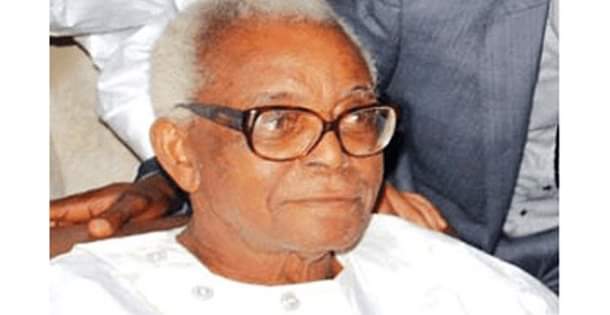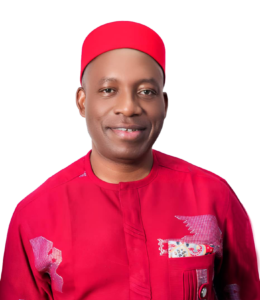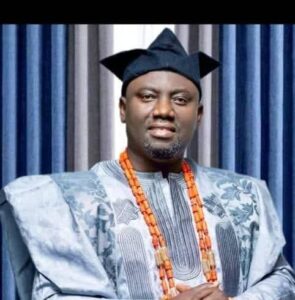
Anthony Enahoro, one of Nigeria’s foremost nationalists who was granted pardon by Presidential Muhammadu Buhari on Thursday, was indicted by the federal assets investigation panel in 1976, TheCable can report.
There has been a stream of speculation as to why Buhari granted him pardon, with most people assuming it was for his treason conviction by the Tafawa Balewa government in 1963 over which he had already been pardoned in 1966.
TheCable had also reported the confusion, listing three possibilities for the pardon: Enahoro’s three convictions for sedition during colonial times which earned him the sobriquet “Jailbird Enahoro”; his conviction for treason along with Obafemi Awolowo in 1963; and his trial for treason by the Sani Abacha in 1995.
The federal government is yet to give official reasons for the pardon, which was extended to four other Nigerians.
However, fresh facts unearthed by TheCable confirm that Enahoro, who served as federal commissioner (minister) for information and labour from 1967 to 1974 and then special duties from 1974 to 1975 — both under in the Yakubu Gowon government — had his assets confiscated in 1975 after his indictment.
Murtala Muhammed overthrew Gowon in a military coup on July 29, 1975.
On September 16, 1975, Muhammed set up the federal assets investigation panel to probe all former governors, the administrator of east central state and some federal commissioners who served in Gowon’s regime.
On February 3, 1976, the panel released its report and 10 out of 12 former governor were found guilty of gross abuse of office.
The confiscated assets stood at about N10 million (equivalent of about $8 million in 1976).
Although an indictment is not a conviction, the “pardon” means the properties seized from Enahoro may now be returned to his family.
Eric Teniola, one of Nigeria’s respected journalists who reported the proceedings of the panel at the time, confirmed TheCable’s findings.
“The panel exonerated only two former military governors — Brigadier Mobolaji Johnson of Lagos state, and Brigadier Oluwole Rotimi of the Western state. The remaining 10 were indicted and the panel asked that all their assets be seized by the military government,” he told TheCable.
“The panel also indicted former federal commissioners, including Chief Anthony Enahoro and Chief Edwin Clark, and ordered that their properties be seized. Many cinema houses in Lagos traced to Clark were seized as he was alleged to have appropriated government property to himself.
“They started fighting the indictment on the grounds that the panel was not properly constituted and that they did not get fair hearing. I want to believe the pardon for Enahoro means his family can now claim those properties back.”
Historical records searched by TheCable corroborate Teniola’s recollections.
In an article, The Rollercoaster Life Of Murtala Muhammed, Max Siollun, the historian and author, wrote: “Apart from Shehu Shagari and Ali Monguno, all of Gowon’s civilian ministers were also found guilty of corrupt enrichment and were stripped of illegally obtained assets. Among those found to have corruptly enriched himself was the veteran nationalist politician Anthony Enahoro.”
It is still unclear if the “pardon” for Enahoro was based on the 1976 indictment but it is very likely.
PARDON OR ‘RESPITE’?
There has also been some confusion over the use of the word “presidential pardon” by Aregbesola at his media briefing.
Presidential pardons are usually for convictions but Enahoro was only indicted.
Section 175 (1) (a) of the 1999 constitution says the president “may grant any person concerned with or convicted of any offence created by an Act of the National Assembly a pardon, either free or subject to lawful conditions”.
However, section (b) says the president can grant “a respite” — either for an indefinite or for a specified period, of the execution “of any punishment imposed on that person for such an offence (c) substitute a less severe form of punishment for any punishment imposed on that person for such an offence; or (d) remit the whole or any part of any punishment imposed on that person for such an offence or of any penalty or forfeiture otherwise due to the State on account of such an offence”.
Section (d) may be applied to the forfeiture of Enahoro’s assets to the federal government in 1976.
Again, no government official has responded to questions from TheCable on the actual reasons behind the decision.
As pointed out by TheCable already, 175(2) says the powers of the president “under subsection (1) of this section shall be exercised by him after consultation with the Council of State”.
There is no reference to any council of state meeting in the announcement by the minster of interior.












